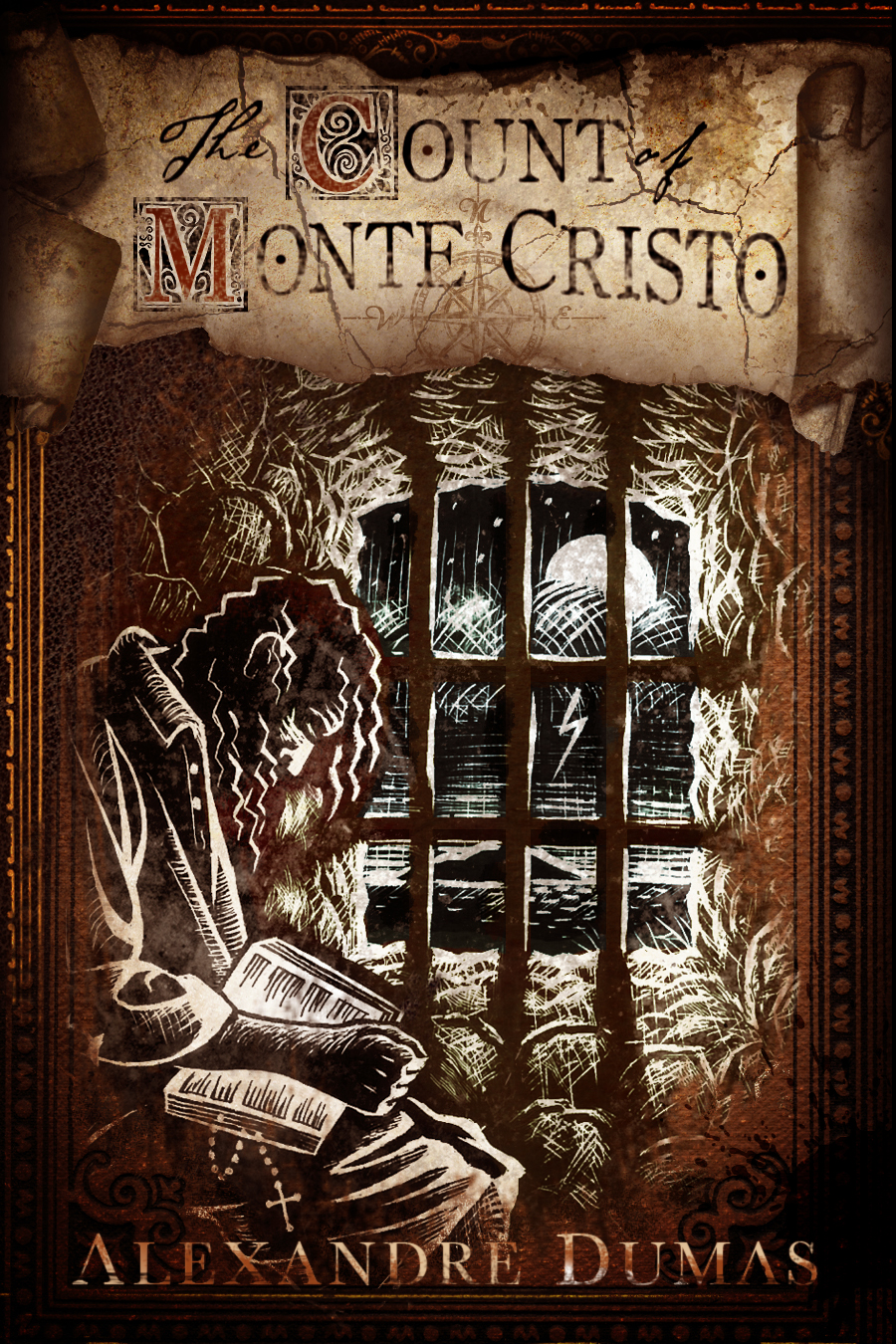Exploring Themes Of Justice And Revenge In The Count Of Monte Cristo: A Book Review

Table of Contents
Edmond Dantès's Pursuit of Revenge: A Detailed Look
Edmond Dantès, a young sailor brimming with hope and love, is cruelly betrayed by those he trusts. This betrayal leads to his wrongful imprisonment, a profound injustice that sets the stage for his transformative journey. Years of confinement in the infamous Château d'If shatter his innocence and forge a ruthless plan for revenge. His transformation is not merely physical but also psychological; he emerges from prison not as a victim, but as a master of disguise and manipulation.
Edmond’s revenge is meticulously planned and executed. Key elements of his strategy include:
- Targeted Retribution: He systematically targets each of his betrayers, ensuring they suffer consequences proportionate to their crimes.
- Calculated Actions: His actions are not impulsive but carefully calculated, revealing a keen intellect and strategic mind.
- Psychological Torment: He inflicts significant psychological damage on his enemies, demonstrating a mastery of manipulation and control.
But is Edmond’s pursuit simply justice or a descent into merciless vengeance? The novel presents a moral ambiguity that forces readers to confront the complexities of retribution. While his actions might seem justified given the injustice he suffered, the methods he employs raise ethical questions. The line between seeking justice and enacting revenge becomes increasingly blurred.
The Blurred Lines Between Justice and Revenge in the Narrative
The Count of Monte Cristo doesn't offer a straightforward depiction of justice. Instead, Dumas presents a morally ambiguous world where the legal system often fails, forcing characters to seek justice through unconventional – and sometimes illegal – means. The novel highlights the inadequacy of formal justice and the human tendency to seek retribution outside the confines of the law.
The blurred lines between justice and revenge are evident throughout the narrative:
- Extrajudicial Justice: Several characters resort to unlawful acts to achieve what they perceive as justice.
- Corrupted Systems: The novel portrays a legal system riddled with corruption and inefficiency, fueling the need for self-administered justice.
- Psychological Toll: Both revenge and the pursuit of justice exact a heavy psychological toll on the characters involved, highlighting the devastating impact of both on the human spirit.
This moral ambiguity forces the reader to question whether true justice is ever truly served.
Haydée's Story: A Parallel Narrative of Injustice and Resilience
Haydée, a captivating character in her own right, provides a powerful counterpoint to Edmond's story. Like Edmond, she is a victim of profound injustice, having suffered under the tyranny of Ali Pasha. However, unlike Edmond, Haydée's approach to justice is more nuanced and less focused on revenge. While she seeks recompense for her past suffering, she demonstrates a remarkable capacity for forgiveness and resilience. Haydée’s story serves as a compelling foil to Edmond’s relentless pursuit of revenge, suggesting alternative paths toward resolution and highlighting the redemptive power of compassion and strength.
The Ultimate Question: Does Edmond Achieve Justice or Simply Revenge?
Edmond's actions culminate in a complex web of consequences, leaving the reader to ponder whether his quest was truly about justice or merely fueled by revenge. While he brings his betrayers to ruin, the question remains whether this constitutes genuine justice or simply a brutal settling of scores. The emotional and psychological cost of his relentless pursuit is significant, impacting not only himself but also those around him. His final choices are shrouded in ambiguity, leaving the reader to contemplate whether true justice is ever attained, or if the cycle of revenge only breeds further suffering.
Consider this contrast:
- Vengeance: Edmond's meticulously planned actions, targeting each betrayer individually for personal ruin.
- Justice: A fairer approach might have involved seeking legal redress for his wrongful imprisonment and ensuring those responsible faced legal consequences.
Conclusion: Reflecting on Justice and Revenge in The Count of Monte Cristo
The Count of Monte Cristo presents a nuanced and multi-layered exploration of justice and revenge. Through the compelling narratives of Edmond Dantès and Haydée, Dumas forces us to confront the moral ambiguities inherent in both the pursuit of justice and the act of revenge. The novel's enduring relevance lies in its timeless exploration of these complex themes. Ultimately, it prompts us to consider whether true justice can ever be achieved without succumbing to the destructive cycle of vengeance. To delve deeper into the themes of justice and revenge in The Count of Monte Cristo, read the novel yourself and engage in discussions on its fascinating characters and their moral dilemmas. Explore the fascinating interplay of justice and revenge presented in this classic novel.

Featured Posts
-
 Catch Red Wings And Tigers Games Fox 2 Simulcast Announcement
May 04, 2025
Catch Red Wings And Tigers Games Fox 2 Simulcast Announcement
May 04, 2025 -
 Stanley Cup Playoffs Us Ratings Dip Despite International Interest
May 04, 2025
Stanley Cup Playoffs Us Ratings Dip Despite International Interest
May 04, 2025 -
 Lizzos Weight Loss Journey Celebrating Her Health Goals
May 04, 2025
Lizzos Weight Loss Journey Celebrating Her Health Goals
May 04, 2025 -
 Alzhir I Frantsiya Ukrainskiy Krizis I Buduschie Otnosheniya
May 04, 2025
Alzhir I Frantsiya Ukrainskiy Krizis I Buduschie Otnosheniya
May 04, 2025 -
 Iskrennee Priznanie Dzhidzhi Khadid O Romane S Kuperom
May 04, 2025
Iskrennee Priznanie Dzhidzhi Khadid O Romane S Kuperom
May 04, 2025
Latest Posts
-
 Race To The Finish Churchill Downs Renovation Efforts For The Kentucky Derby
May 04, 2025
Race To The Finish Churchill Downs Renovation Efforts For The Kentucky Derby
May 04, 2025 -
 Meet The 2025 Kentucky Derby Jockeys Profiles And Predictions
May 04, 2025
Meet The 2025 Kentucky Derby Jockeys Profiles And Predictions
May 04, 2025 -
 Kentucky Derby 2024 Churchill Downs Renovation Progress
May 04, 2025
Kentucky Derby 2024 Churchill Downs Renovation Progress
May 04, 2025 -
 Kentucky Derby 2024 Simone Biles Special Riders Up Participation
May 04, 2025
Kentucky Derby 2024 Simone Biles Special Riders Up Participation
May 04, 2025 -
 2025 Kentucky Derby A Look At The Competing Jockeys
May 04, 2025
2025 Kentucky Derby A Look At The Competing Jockeys
May 04, 2025
